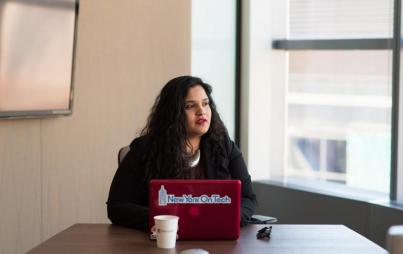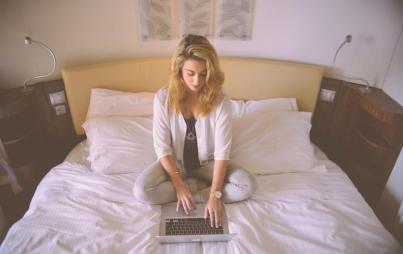
When you have chronic illnesses or other disabilities, looking for a job is even worse.
Job hunting sucks. No matter what kind of job you are looking for, job hunting is demoralizing and depressing.
When you have chronic illnesses or other disabilities, looking for a job is even worse.
Sick and disabled people have to think and worry about so many things that non-disabled people don’t. Here is a partial list of the things that I think about when I am applying for a job: is this job accessible? Should I disclose my chronic illnesses? If I was referred by a friend, have they told the hiring manager that I have illnesses? Are they just going to google me and find out anyway? Will I be able to do the job on a sustained basis? What if I get too sick to work after starting the job? Will they be flexible with my need for frequent doctors appointments? After I start, will I be embarrassed about the things that my body needs?
The theme of these questions is “Will someone hire me IN SPITE OF my chronic illnesses”? As someone currently between jobs, I keep finding myself in a low-grade depression due to my inability to find a job and fears (and realities) around getting a job as a sick person.
Recently, I decided to change my thinking, and I'd like to encourage hiring managers to do the same. I reframed the issue and started thinking about the ways that my chronic illnesses help me to be a better employee. Here are some reasons people with chronic illnesses make great employees.
1. Employees With Disabilities Can Help Diversify The Workplace.
It’s important to have people with a diversity of knowledge and experience in the workplace. If you don’t have people looking at an issue from different perspectives, you are liable to make a big mistake. Disabled people may have an understanding of what is needed for accessibility that doesn’t occur to people who are able-bodied. Diversity helps businesses; we may be able to help avert a crisis before it begins because of our unique experiences and insight.
You Might Also Like: Exercise Is My Way Of Controlling My Chronic Illness
2. We Have Excellent Time Management Skills.
I have the best time management skills of anyone I know. When you have a chronic illness, you never know when you are going to be too sick to do something — or as I call it “turn into a pumpkin.” So when I can get things done, I go full force. If I can work, I am working hard. In the end, I do way more work than my non-disabled counterparts because my time is too precious to waste.
3. We Have Solid Safety Net Systems.
Everyone has a body, and sometimes bodies get sick. However, unlike my able-bodied counterparts, I build in systems that take into account my illnesses so that when I am sick, my work is not affected. For example, I once had a job that involved interviewing people. I made sure to always have interviewee contact information with me so that if I was sick one day, I could call them from home and reschedule. Technology makes this even easier. Anyone can have an unplanned sick day, but the disabled person will be more likely to handle it without letting anything fall through the cracks.
4. We Are Productive — Even From Home.
While employers have mixed feelings about remote work, most employees are more productive working from home. I know that when I work from home, I am more productive in part because I know that many employers are still squeamish about it, so I make sure I really knock it out of the park. Should I have to do more and do it better than my in-office counterparts to keep my boss happy? Absolutely not. However, this is the reality of most marginalized people. Though there are laws in place that prohibit employment discrimination against people with disabilities and laws that require employers to make reasonable accommodations for disabled employees, it’s incredibly easy for employers to get around these laws.
Disabled people can bring so many unique skills, knowledge, and experiences to the workplace. While sick people are much more than just our illnesses, our illnesses should be seen as a feature, not a bug. Hiring managers should not be scared off when they find out a prospective employee is sick and instead see it as an opportunity for diversity. While my illnesses make many jobs impossible — you will not see me applying for anything that requires being on my feet all day — many of the jobs we can do we can often do as well if not better than our able-bodied peers. So until capitalism is destroyed, I will try to find a job where I can be my full productive and brilliant self — sickness and all.








